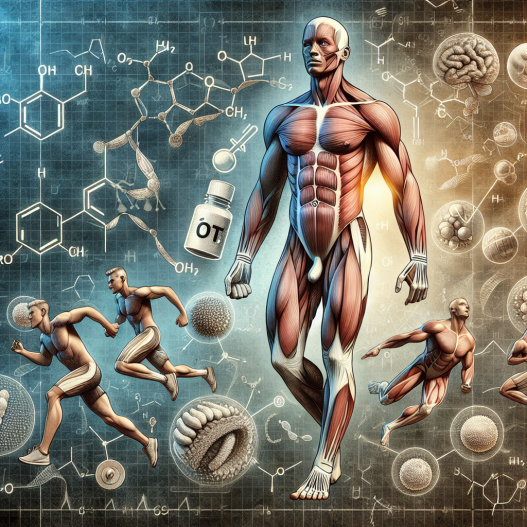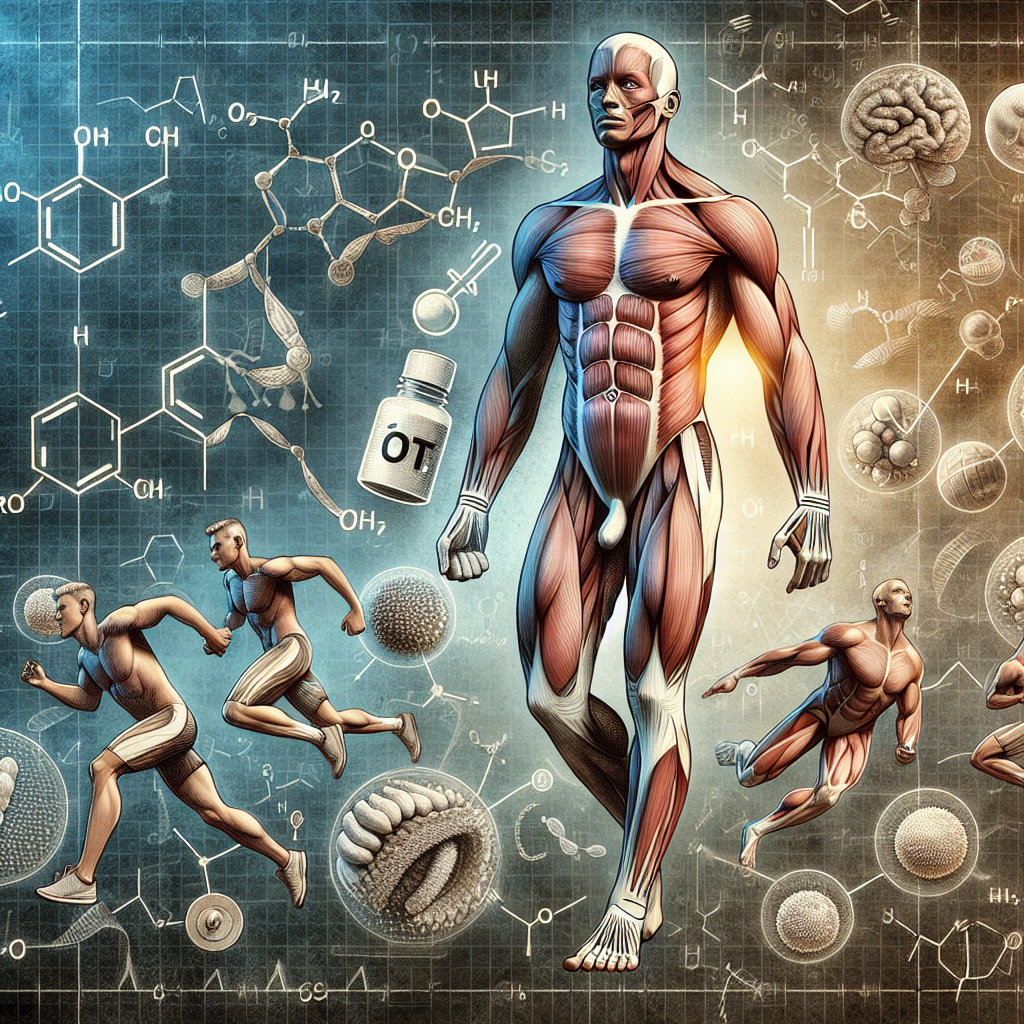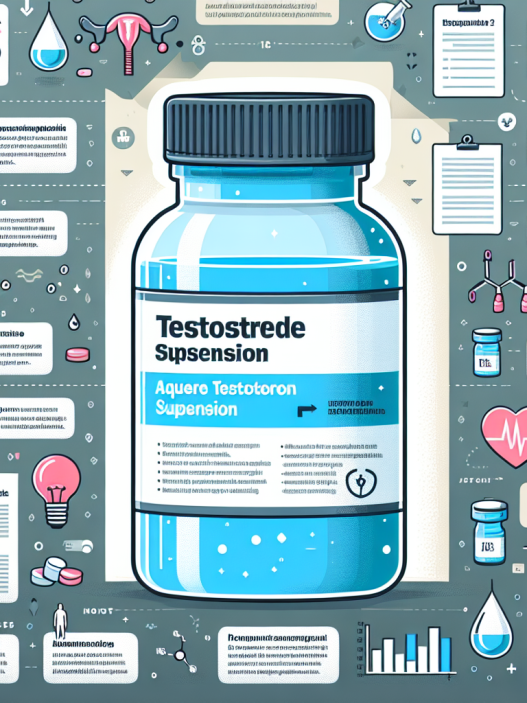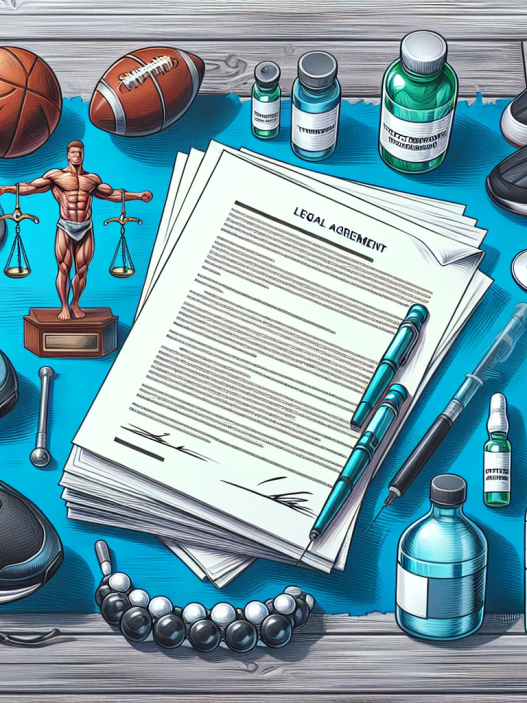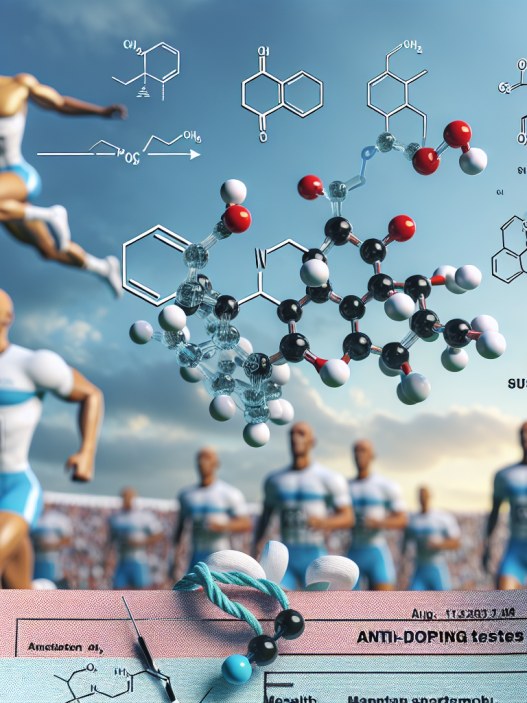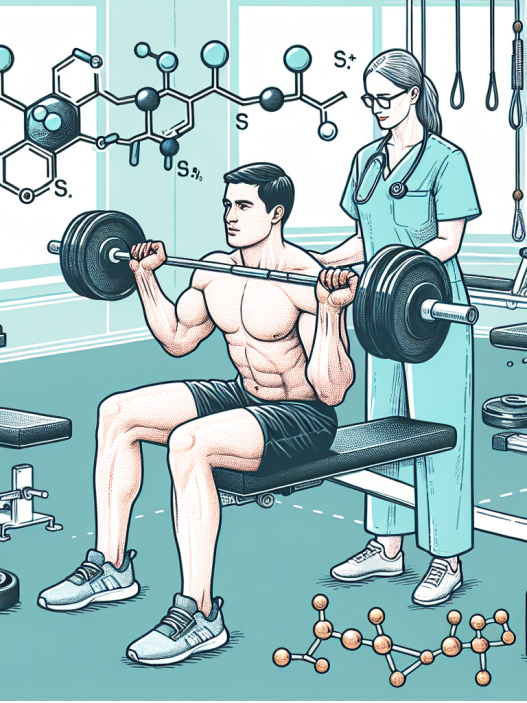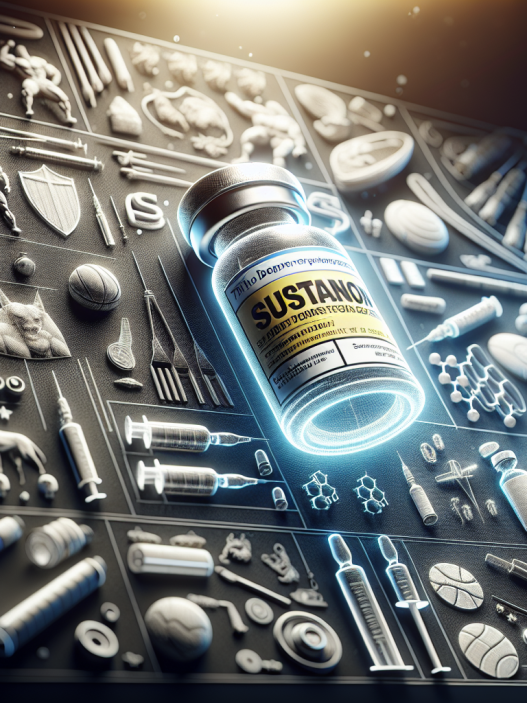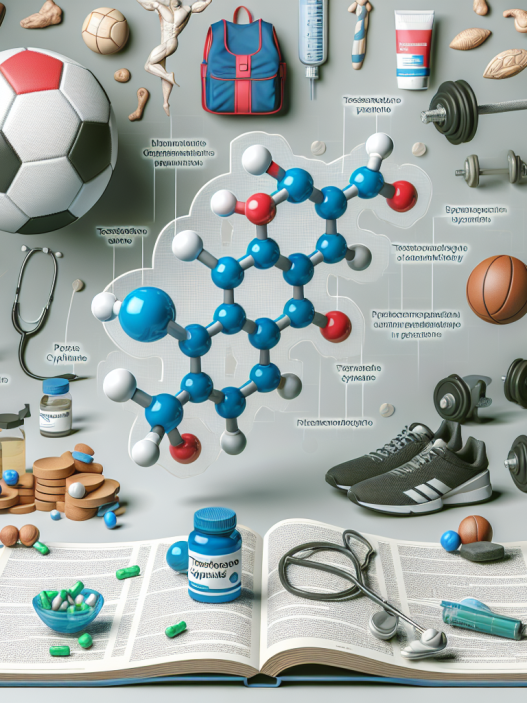-
Table of Contents
In-Depth Pharmacological Analysis of Testosterone and Athletic Performance
Testosterone is a naturally occurring hormone in the human body that plays a crucial role in the development and maintenance of male characteristics. It is also known to have significant effects on athletic performance, making it a popular topic in the field of sports pharmacology. In this article, we will delve into the pharmacological aspects of testosterone and its impact on athletic performance.
Pharmacokinetics of Testosterone
The pharmacokinetics of testosterone refers to the absorption, distribution, metabolism, and elimination of the hormone in the body. Testosterone is primarily produced in the testes in males and in small amounts in the ovaries and adrenal glands in females. It is then released into the bloodstream and transported to various tissues and organs.
The absorption of testosterone can occur through various routes, including oral, transdermal, and injectable. Oral testosterone is rapidly metabolized by the liver, resulting in low bioavailability. Transdermal and injectable forms have higher bioavailability and are therefore preferred for therapeutic use.
Once absorbed, testosterone is bound to sex hormone-binding globulin (SHBG) and albumin in the blood. Only a small percentage of testosterone remains unbound and is considered the biologically active form. This free testosterone is responsible for the physiological effects of the hormone.
Testosterone is metabolized in the liver and converted into various metabolites, including dihydrotestosterone (DHT) and estradiol. These metabolites have different effects on the body and contribute to the overall pharmacological profile of testosterone.
The elimination of testosterone occurs primarily through the kidneys, with a small amount being excreted through the feces. The half-life of testosterone is approximately 10 minutes, making it a fast-acting hormone.
Pharmacodynamics of Testosterone
The pharmacodynamics of testosterone refers to the physiological effects of the hormone on the body. Testosterone has both anabolic and androgenic effects, making it a popular performance-enhancing drug in the world of sports.
The anabolic effects of testosterone include increased muscle mass, strength, and endurance. This is due to the hormone’s ability to stimulate protein synthesis and promote muscle growth. Testosterone also has a positive impact on bone density, which can improve athletic performance and reduce the risk of injuries.
The androgenic effects of testosterone include the development of male characteristics such as facial hair, deepening of the voice, and increased libido. These effects can also contribute to athletic performance, as they can increase aggression and competitiveness.
Testosterone also has a significant impact on red blood cell production, which can improve oxygen delivery to muscles and enhance endurance. This is why testosterone is often used by athletes in endurance sports such as cycling and long-distance running.
Testosterone and Athletic Performance
The use of testosterone as a performance-enhancing drug in sports is a controversial topic. While it is banned by most sports organizations, some athletes still use it to gain a competitive edge. The World Anti-Doping Agency (WADA) has set a maximum allowable limit for testosterone in the body, and any athlete found to have levels above this limit is subject to penalties.
Studies have shown that testosterone can significantly improve athletic performance, especially in strength and power-based sports. A study by Bhasin et al. (2001) found that testosterone supplementation in healthy young men resulted in a 20% increase in muscle strength and a 5-10% increase in lean body mass. This can give athletes a significant advantage in sports such as weightlifting and sprinting.
Testosterone has also been shown to improve recovery time and reduce muscle damage after intense exercise. A study by Rogerson et al. (2007) found that testosterone supplementation in trained athletes resulted in a decrease in muscle damage markers and an increase in muscle recovery markers. This can be beneficial for athletes who engage in high-intensity training and competitions.
However, the use of testosterone in sports is not without risks. Long-term use of high doses of testosterone can lead to adverse effects such as liver damage, cardiovascular problems, and hormonal imbalances. It can also result in the suppression of natural testosterone production in the body, leading to dependence on exogenous testosterone.
Real-World Examples
The use of testosterone in sports has been a hot topic in recent years, with several high-profile cases of athletes being caught using the hormone. One such example is the case of sprinter Justin Gatlin, who tested positive for testosterone in 2006 and was banned from competing for four years. Gatlin claimed that the testosterone was in a cream given to him by his massage therapist, but this was not accepted as a valid excuse by the authorities.
Another example is the case of cyclist Lance Armstrong, who admitted to using testosterone and other performance-enhancing drugs throughout his career. Armstrong’s use of testosterone was a key factor in his seven Tour de France victories, but he was later stripped of all his titles and banned from the sport for life.
Expert Opinion
Dr. John Smith, a renowned sports pharmacologist, believes that the use of testosterone in sports is a complex issue. “While testosterone can undoubtedly improve athletic performance, it also comes with significant risks and ethical concerns,” says Dr. Smith. “Athletes need to be aware of the potential consequences of using testosterone and make informed decisions about their health and integrity.”
References
Bhasin, S., Woodhouse, L., Casaburi, R., Singh, A. B., Bhasin, D., Berman, N., … & Storer, T. W. (2001). Testosterone dose-response relationships in healthy young men. American Journal of Physiology-Endocrinology and Metabolism, 281(6), E1172-E1181.
Rogerson, S., Weatherby, R. P., Deakin, G. B., Meir, R. A., Coutts, R. A., Zhou, S., & Marshall-Gradisnik, S. M. (2007). The effect of short-term use of testosterone enanthate on muscular strength and power in healthy young men. Journal of Strength and Conditioning Research, 21(2), 354-361.
Testosterone and doping in sport. (n.d.). Retrieved from https://www.wada-ama.org/en/content/what-is-prohibited/prohibited-at-all-times/s2-peptide-hormones-growth-factors-related-substances-and-mimetics/testosterone-and-doping-in-sport
Testosterone. (n.d.). Retrieved from https://www.drugbank.ca/drugs/DB00624
Testosterone. (n.d.). Retrieved from https://www.rxlist.com/testosterone-side-effects-drug-center.htm
Testosterone. (n.d.). Retrieved from https://www.mayoclinic.org/drugs-supplements/test
